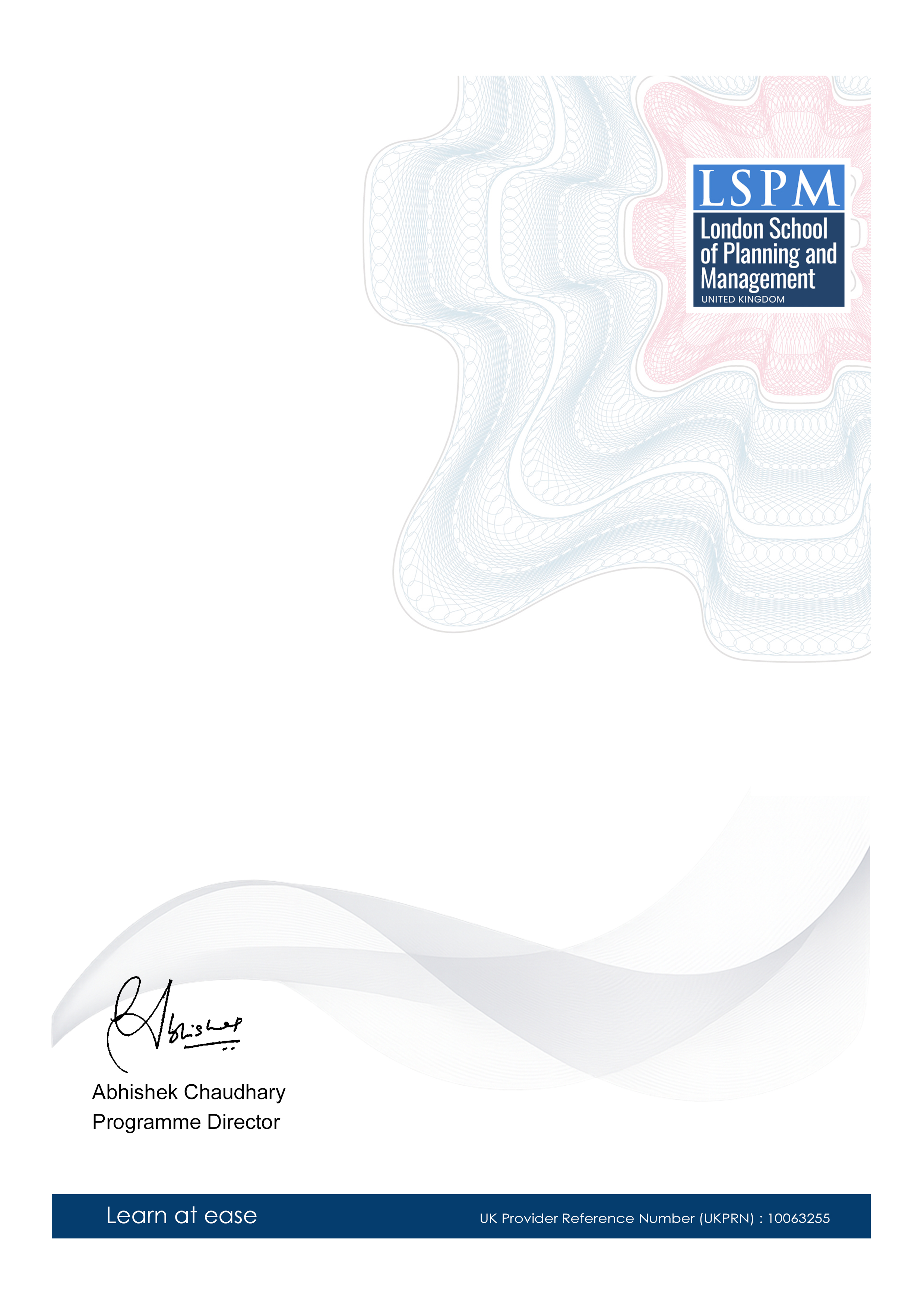Global Certificate Course in Robotics for Humanitarian Projects
-- viewing nowThe Global Certificate Course in Robotics for Humanitarian Projects is designed for individuals interested in using robotics to solve real-world problems. The course provides a comprehensive understanding of robotics principles, programming, and applications in humanitarian projects.
2,845+
Students enrolled
GBP £ 149
GBP £ 215
Save 44% with our special offer
About this course
100% online
Learn from anywhere
Shareable certificate
Add to your LinkedIn profile
2 months to complete
at 2-3 hours a week
Start anytime
No waiting period
Course details
Career path
Global Certificate Course in Robotics for Humanitarian Projects
The Global Certificate Course in Robotics for Humanitarian Projects is a comprehensive program designed to equip students with the necessary skills to develop and deploy robotics solutions for social good. The program covers a wide range of topics, including robotics fundamentals, artificial intelligence, machine learning, and human-robot interaction. Upon completion, students will be able to design, build, and deploy robotics systems that can address real-world challenges in areas such as disaster relief, healthcare, education, and environmental conservation.
Career Roles
Robotics Engineer
A robotics engineer designs, builds, and programs robots. They work on various aspects of robotics, including mechanical design, electrical engineering, and software development. In the UK, the average salary for a robotics engineer is £50,000 per year.
Humanitarian Project Manager
A humanitarian project manager oversees the planning, implementation, and evaluation of humanitarian projects. They work closely with stakeholders to ensure that projects are aligned with the needs of the community and that they achieve their intended goals. In the UK, the average salary for a humanitarian project manager is £45,000 per year.
Job Market Trends
Increasing Demand for Robotics Professionals
The demand for robotics professionals is expected to grow significantly in the coming years due to advancements in technology and the increasing use of robots in various industries. This trend is particularly evident in the UK, where the government has launched several initiatives to promote the development and adoption of robotics technologies.
Growing Opportunities for Social Good
There is a growing recognition of the potential for robotics to address social and environmental challenges. As a result, there are increasing opportunities for robotics professionals to work on projects that have a positive impact on society. This trend is particularly evident in the humanitarian sector, where robots can be used to save lives, reduce suffering, and improve the quality of life for vulnerable populations.
Entry requirements
- Basic understanding of the subject matter
- Proficiency in English language
- Computer and internet access
- Basic computer skills
- Dedication to complete the course
No prior formal qualifications required. Course designed for accessibility.
Course status
This course provides practical knowledge and skills for professional development. It is:
- Not accredited by a recognized body
- Not regulated by an authorized institution
- Complementary to formal qualifications
You'll receive a certificate of completion upon successfully finishing the course.
Why people choose us for their career
Loading reviews...
Frequently Asked Questions
Course fee
- 3-4 hours per week
- Early certificate delivery
- Open enrollment - start anytime
- 2-3 hours per week
- Regular certificate delivery
- Open enrollment - start anytime
- Full course access
- Digital certificate
- Course materials
Get course information
Earn a career certificate

